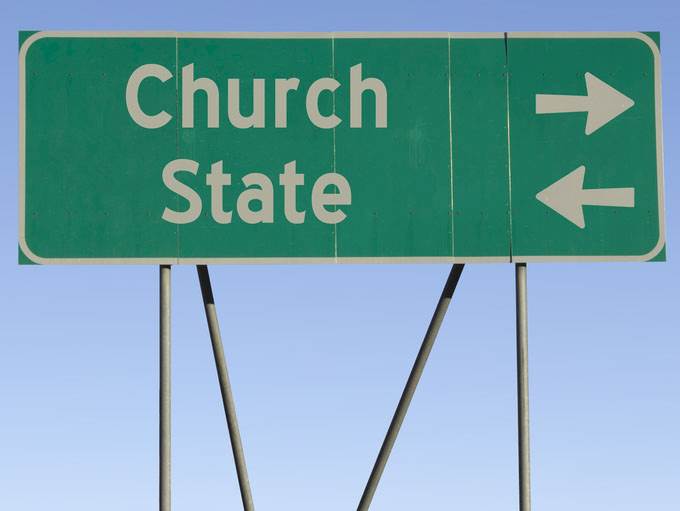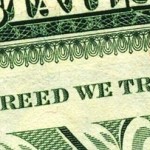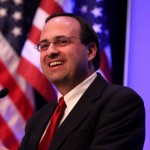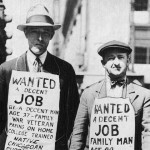
I am grateful to Emmaus Road Mennonite Fellowship in Berne, IN for asking me to deliver a message the Sunday before Election Day 2016. This is the first sermon I’ve ever written or delivered. There is more where this came from, but I wanted to keep it to about 20 minutes. Some have asked that I make this available online, so that’s what I’m doing here. I have broken this up into many small paragraphs for readability. A special thanks to Paul and Jean Michelson for coming to listen. Enjoy.
***
I want to begin this sermon with a quote and a few questions:
“Some believe it is only great power that can hold evil in check, but that is not what I have found. It is the small everyday deeds of ordinary folk that keep the darkness at bay. Small acts of kindness and love.” – Gandalf
What are your politics?
What are your politics as a Mennonite Christian?
What are your politics as a Mennonite Christian living in the United States of America in 2016 and as a member of Emmaus Road Mennonite Fellowship, located in Berne, IN?
What do your politics look like?
What do our politics look like?
I hope by the end of this sermon we might have made some way forward in answering these questions, particularly as they relate to political conservatism and political progressivism in our culture today.
Emmaus Road is approaching a time of some uncertainty. Soon, we’re going to begin a search for new pastoral leadership. This process, I think, requires that we know what we are and what we are not. Emmaus Road began in 2007-08. Many of us here parted ways with First Mennonite in search of a community more comfortable with certain questions, doubts, and convictions. I won’t mince words: The founders of this church desired an authentically Anabaptist-Mennonite religious community which would hold with care their Anabaptist-Mennonite commitments, beliefs, and practices.
Now, it is not the place of this sermon to define what those things are; I tell this history because it is important to our political identity and because it serves as a signpost; our story tells us where we have come from, but in so doing, it reveals to us those briars and brambles and dangerous places into which we are most prone to wander. I am talking about political progressivism. Please, have patience with me.
C.S. Lewis, in The Screwtape Letters, introduces a concept called “Christianity and…”, wherein a Christian believer might “substitute for the faith itself some fashion with Christian coloring.” He offers a number of examples: Christianity and the New Psychology, Christianity and the New Order, Christianity and Faith Healing, Christianity and Vegetarianism, Christianity and Spelling Reform. Lewis contrasts the steady and familiar rhythm of God and his creation with society’s demand for – and fascination with – novelty.
In connexion with this, Lewis, speaking as Uncle Screwtape, a senior demon writing to his understudy nephew, says, “Certainly we do not want men to allow their Christianity to overflow into their political life, for the establishment of anything like a really just society would be a major disaster. On the other hand we do want, and want very much, to make men treat Christianity as a means; preferably, of course, as a means to their own advancement, but, failing that, as a means to anything – even to social justice. The thing to do is to get a man first to value social justice as a thing which the Enemy (that is, God) demands, and then work him on to the stage at which he values Christianity because it may produce social justice. For the Enemy will not be used as a convenience.”
I remember in college reading Lewis and feeling convicted that I had fallen into the “Christianity and…” trap; that my faith had become too closely connected to my political convictions, which were, of course, far too attached to that eminently human need to be right. Lewis’s words apply to conservatives, progressives, socialists, libertarians, and all other political ideologies.
Now, just a few moments ago, I said that our story serves as a signpost, it tells us where we have come from, and at the same time, reveals to us those briars and brambles into which we are most prone to wander. “Christianity and….” I do not want to be the progressive version of First Mennonite, such that an impartial observer might say that they are the conservative version of Emmaus Road. I want to be the Mennonite version of First Mennonite and I’m trying to understand what that means for us as it relates to this election and to politics generally.
Many of you are familiar with Wendell Berry, the farmer and author. In his essay, “In Distrust of Movements,” he vows never again to join any social movements, which these days mostly refers to angsty, hashtag-wielding, meme-dropping social media mobs, armed with a vocabulary of buzzwords which may be throw about thoughtlessly.
I think there’s a lot to this. We aren’t a social movement. We are a 2,000 year old religion. We are older and prior to the ideologies of the Nation-State: American conservatism – which in its current form began during the Cold War or perhaps even later – and American progressivism – which began about a hundred years ago. The right may vote Republican. The left may vote Democrat. But we take Communion, we practice the Works of Mercy, we cultivate the Fruits of the Spirit, and we are privy to the spiritual disciplines: fasting, prayer, giving, confession, gratitude. I think we ought to be wary of using Jesus to push forward and empower the ideologies of the Nation-State.
One objection might be that progressivism is simply the modern political expression of following Jesus and that therefore to agitate for progressive values is to do God’s work. But we should keep in mind that conservatives believe the very same thing and are prepared to argue that it is their political ideology which best reflects the will of God. Mike Pence is fond of saying that he’s a Christian first, a conservative second, and a Republican third. Are we comfortable with being the progressive version of Mike Pence? Is that what we want our politics to look like? I am not certain that Christian politics consists of in-fighting over which Nation-State ideology best represents the mission of Christ.
When I was 25 years old, I read Walden by Henry David Thoreau. This book affected me in a profound and lasting way. It ignited a change in my spiritual constitution. The sedative that is American materialism became unattractive to me. The certainty which ready-made ideologies offer lost its grip on me. I became servant to a higher calling (as we all have) – to live as Jesus lived, to learn about The Way and to pursue truth at the expense of ego. I gave away half my possessions, left behind an ideological commitment to libertarian politics, and became open to divine possibilities which I could not see before. When I walked out on the Kingdom of the World, I unknowingly walked into the Kingdom of God, that wild and open place where everything feels a little more enchanted and the world isn’t so flat.
I remember the day when I became a pacifist, not long after. It happened in an instant, it happened deep in my soul, and it struck me as so plain to see: Of course the way of Jesus is nonviolence, to think nonviolently, to speak nonviolently, to act nonviolently. It was only a matter of time, then, before I found my way to a Peace Church.
Now, nonviolence sounds great, but for most of us, it is a journey, not a destination. It is a way of life, and life is a series of failures, punctuated by brief moments of success. I’m working out what it means to live as Jesus lived and I’m doing the best I can to try and understand what his birth, life, and death mean for our politics. But I am not satisfied with the idea that God came to the planet, gave sight to the blind, was murdered by the powers that be, and rose from the dead to claim victory, and all it means for Mennonites is that we should support the welfare state and vote for progressive candidates.
Christ does, indeed, have victory over the powers and principalities of this world. We are, as his Church, called to come out of her, to come out of the Kingdom of the World, so that we do not take part in her sins. But I am not certain that progressivism or conservatism offers this freedom.
Anabaptist politics, Christian politics, must be bigger than our opinions on what some enormous, far-away, bureaucratic provider of goods and services says and does. We are born again – we have a new citizenship – the Kingdom of God. We are sojourners on this planet. We have no country. We have no flag. The U.S. government is not “our” government. Its trained killers are not “our troops.” Its rituals are not our rituals. Its symbols are not our symbols. Its heroes are not our heroes. And its commander-in-chief is not our king.
In a world besieged and flattened by monstrous bureaucracies, leviathan governments, distant corporations, and moral majorities (both left and right), Christian politics – and Anabaptist politics, especially – is supposed offer a Third Way. But I am worried that the politics of Jesus have become intertwined with the politics of the Domination System. I am distressed that in our failure to ask challenging questions about the nature of the Nation-State, we have stripped our politics of its power. I am horrified at how the Church has come to regard the Nation-State as a beneficent protector of the common good, and not as the seat of the Anti-Christ (though I was pleased to see J. Denny Weaver in the October issue of The Mennonite take this position).
The Nation-State is not a benign dispenser of goods and services. In the story of the Temptation of Jesus, the devil is explicit, that all authority has been given to him over the kingdoms of the world. 1 John 5 tells us that the whole world is under the power of the evil one. Ephesians 6 discusses the relationship between the powers and principalities of the world, and “the spiritual forces of evil” and the “powers of […] darkness.” The Book of Revelation is a powerful and prophetic message to Christians, both then and now, on the nature of the State and its violence. In Mere Christianity, C. S. Lewis puts it this way, “Enemy-occupied territory – that is what this world is. Christianity is the story of how the rightful king has landed, you might say landed in disguise, and is calling us to take part in a great campaign of sabotage.”
The Nation-State is more than just political authority or government – and it is more than just “big government” or local-style government writ large. The Nation-State, argues theology professor William Cavanaugh, “does not grow organically out of the self-government of social groups.” Rather, it grows up, and historically did grow up, by absorbing the rights, responsibilities, civil functions, traditions, and customs of local communities as it replaces complex space with uniform space under its dominion. “The State,” Cavanaugh writes, “grows over against truly common forms of life […] Intermediate associations such as the church, unions, and the family still exist, but they are expected to convey identities, virtues, and common ends in a context in which their relationships to production, mutual aid, education, and welfare have been absorbed into the State…”
We have indeed been absorbed. The creeds, symbols, sacraments, and values of the Nation-State have made their way into our churches and homes, into our language, and into our imagination. Voting is automatic. The Pledge of Allegiance, the National Anthem, and the American Flag are ubiquitous and live comfortably in most American Christian communities. The idea of “political philosophy” has become detached from the work and life of the common person and we commit our lives to ideologies which begin and end with the question “what is the role of government?” and never ask “what sort of person am I to become?” I believe Christian politics asks that question.
Christian politics, or what I have called Mustard Seed politics (though I may have picked that line up somewhere, I can’t remember), begins in humble places. It involves small, everyday acts of resistance, subversion, and imagination. In our top-down, technocratic, bureaucratic culture, we stay connected to the soul, to the heart, and to the earth. In our scientistic, hyper-rationalist culture, we take the time to feel our feelings – it is not possible to practice peace without this habit. In our addicted, distracted, and emotionally volatile culture, we remember how important it is to practice awareness and presence of mind. In our culture of hyper-individualism and moral relativism, we remember that we are the Church, that we have a worth beyond what the market or the world believes, that even if our lives fall apart, we still have Communion, that our moral lives and language and imagination are not our own, are not the property of the Nation-State, but belong to God.
That’s what sabotage looks like. It is living out a Christian identity, formed in the Spirit, with reference to scripture and the life of Christ. Gandhi captured the spirit of what I’m talking about: he said, “We but mirror the world. All the tendencies present in the outer world are to be found in the world of our body. If we could change ourselves, the tendencies in the world would also change. As a man changes his own nature, so does the attitude of the world change towards him. This is the divine mystery supreme. A wonderful thing it is and the source of our happiness. We need not wait to see what others do.” Tolstoy echoed this sentiment: “Everyone thinks of changing the world, but no one thinks of changing himself.”
There are a thousand and one voices telling you to Rock the Vote, Get Involved, and Do Your Part. I am not one of those voices. If your conscience so compels you to go to the polls on Tuesday, do it. But do not resign your conscience to the idea that you must vote, or that your vote carries no moral weight. For my part, I will not vote for any candidate with a track record of militarism. And I do not know how we can stand in solidarity with Palestine and vote for candidates who would support Israeli apartheid and occupation. Voting is a religious act. It is a sacrament of the democratic Nation-State. It is not innocuous, and it is not a matter of “being a responsible citizen.” As a rule, I abstain from voting except in those cases where not voting would be an even greater sin, in which case, the act of voting becomes tragic, at best. I urge you to remember that when we vote, in the words of Sophocles, “We bear in our hands our own damnation.”
To conclude, I’ll ask again, What are your politics as a Mennonite Christian living in the United States? The answer is one you’re living out. The answer is a story and it includes more than just your thoughts on justice or equality. The answer is wrapped in flesh and blood. It has a moral and historical particularity and narrative and each one of us as a member of Christ’s church has a place – with all our moments of courage and all our occasions of despair and all our failure to live the life which we have imagined. “We betray ourselves, but grace calls.” Grace calls.












